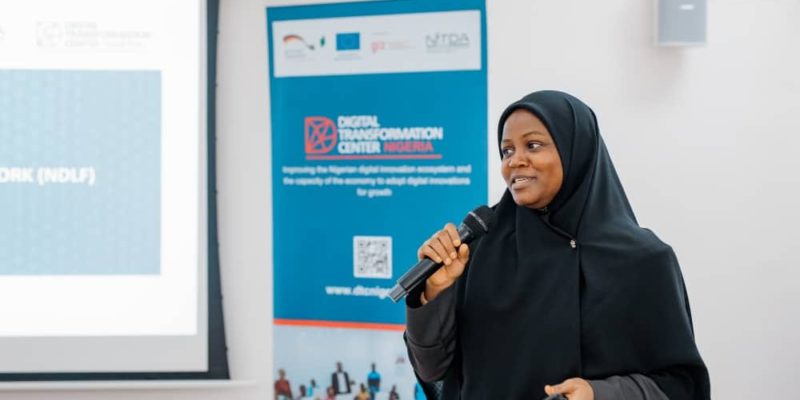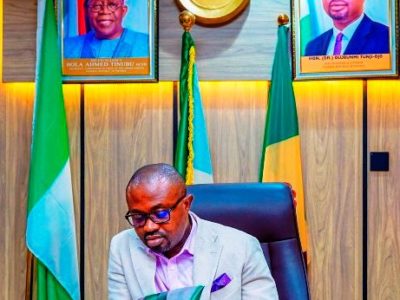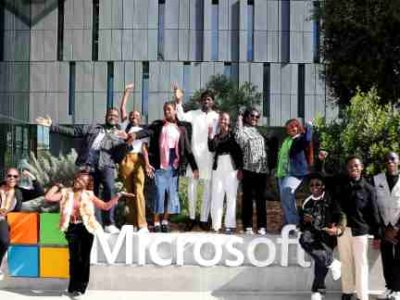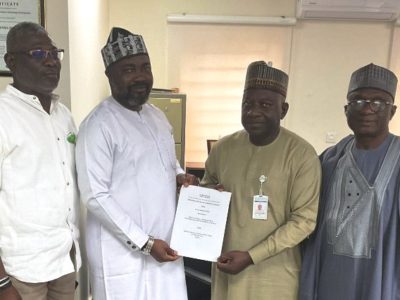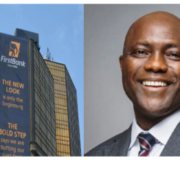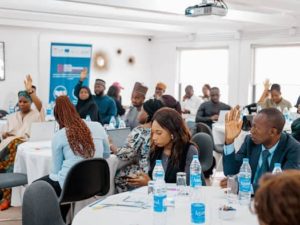
Event aims to bridge digital divide.
The National Information Technology Development Agency (NITDA) in partnership with the GIZ/Digital Transformation Center (GIZ/DTC) recently held a stakeholder awareness on the National Digital Literacy Framework (NDLF) in Lagos. The event is part of the continuous efforts to bridge the digital divide and empower Nigerians with essential digital skills.
RELATED: NITDA, e-Village explore partnership to enhance sustainability of Nigeria’s entrepreneurship ecosystem
The Deutsche Gesellschaft für Internationale Zusammenarbeit GmbH otherwise called German Agency for International Cooperation (GIZ) is an arm of the German Federal Foreign Office committed to supporting developments across sectors around the world. The GIZ/Digital Transformation Center, Nigeria focuses on improving the Nigerian digital innovation ecosystem and the capacity of the economy to adopt digital technologies.
The Director-General of NITDA, Kashifu Inuwa Abdullahi, remarked during the event that the critical role of digital literacy skills in today’s rapidly evolving digital landscape cannot be overlooked. He highlighted the NDLF as a comprehensive roadmap developed by NITDA, in collaboration with key stakeholders, to equip Nigerians with the necessary digital skills to thrive in the digital age.
Abdullahi, who was represented by Dr. Falilat Jimoh of the Digital Inclusion Unit of the agency’s South West Zonal Office (SWZO), asserted that the collaborative efforts with the Ministry of Education were underscored, focusing on integrating the framework’s provisions into the national school curriculum.
“This initiative aims to equip students from a young age with foundational digital skills essential for future success,” he said while noting that NITDA’s partnership with GIZ/DTC is fostered to establish robust standards for digital literacy content, ensuring high-quality and relevant learning materials aligned with the NDLF’s objectives.
He emphasised the importance of collaborative efforts stating that the framework enables the implementation of NITDA’s Strategic Roadmap and Action Plan (SRAP) 2.0, 2024–2027 pillar: “Fostering Digital Literacy and Cultivating Talents”.
He said the “SRAP 2.0 is a living document that is being redrafted to align with the Federal Ministry of Communications, Innovation and Digital Economy policy document “Accelerating Our Collective Responsibility”, which has Five strategic pillars namely, Knowledge, Policy, Infrastructure, Innovation, Entrepreneurship & Capital, and Trade.”
According to the NITDA boss, these programs aim to empower individuals to participate meaningfully in the digital economy and access online opportunities. “This resonates with the Knowledge pillar of the Ministry tailored to accelerate the collective responsibilities of all stakeholders towards achieving inclusivity in all its dimensions which supports the Renewed Hope Agenda that is focused on propelling the Nigerian economy and enhancing the welfare of its citizens”, he said.
Hence, he stated that the workshop goal is to create widespread awareness about the NDLF through interactive sessions and discussions, providing stakeholders with a deeper understanding of its components, target audiences, and potential impact on bridging the digital divide among Nigerians.
Earlier, Dr. Thuweba Diwani the Commission Manager GIZ/DTC Nigeria in her opening remarks delivered by Olusegun Alimi, the Technical Advisor, GIZ/DTC Nigeria, anticipated that the awareness session would be an avenue to dialogue and come up with a “Participatory Policy Implementation Framework (PPIF)” he added, “for policies to be sustainable they need to be owned by the people”.
The DTC Nigeria is a project funded by the European Union and the German Federal Ministry for Economic Cooperation and Development, implemented by GIZ.
Other Ministries, Departments and Agencies (MDAs) at the dialogue were the National Orientation Agency (NOA), National Identity Management Commission (NIMC), Lagos Public Private Partnership (PPP), Lagos State Technical and Vocational Education Board (LASTVEB), Lagos State Employment Trust Fund (LSETF), also, the private sectors represented were MTN Foundation, CISCO, Tech4Dev, Faith Foundation among others.
The moderator, Mr. Tayo Olosunde, an ecosystem industry enthusiast affirmed that the stakeholders’ sessions had also been held in Kano and Abuja.


